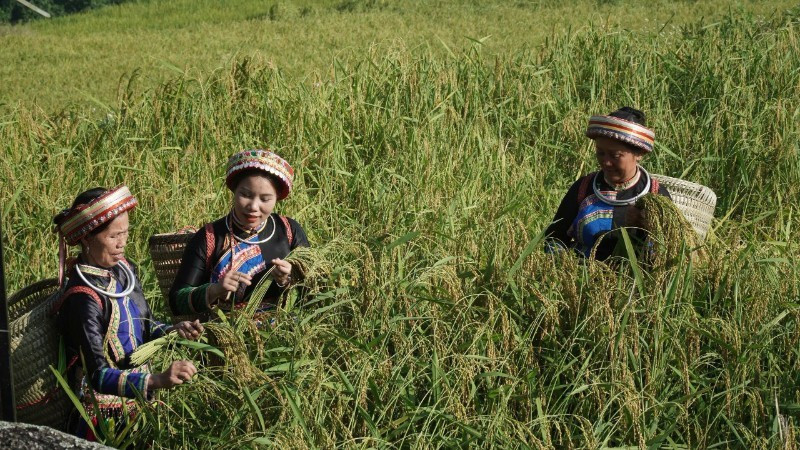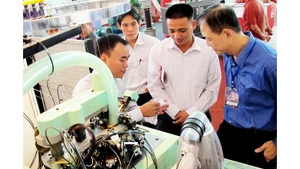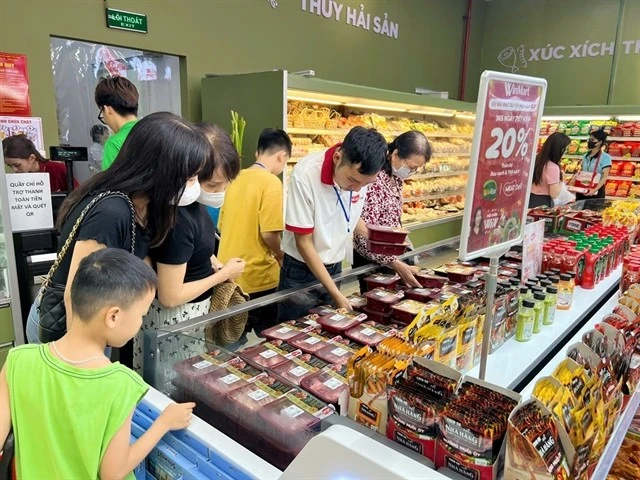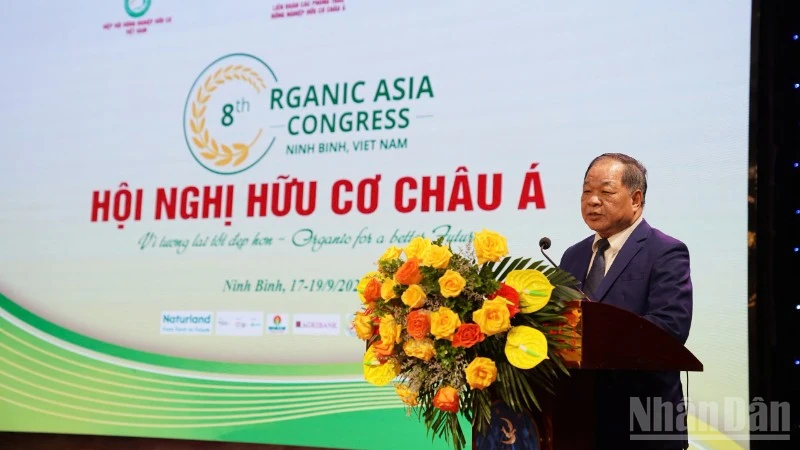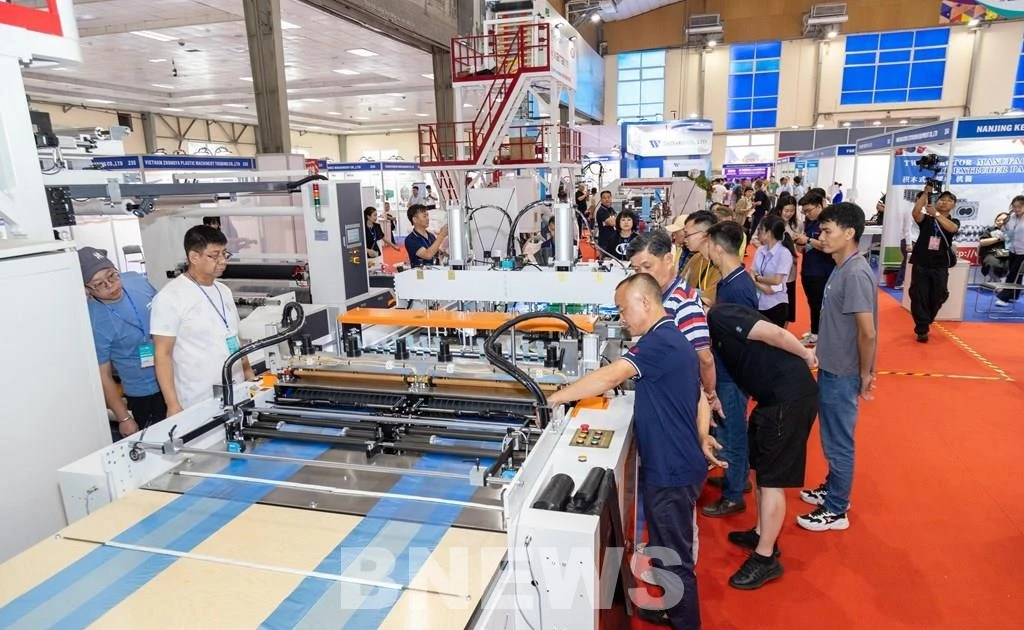Cooperatives are becoming more proactive, dynamic, and innovative in production and promotion. As a result, more cooperatives are asserting their position, generating stable and high incomes.
Outstanding nuclei
In Thuong Minh Commune, everyone knows Yen Duong Cooperative. For the Dao ethnic community in Phieng Phang Hamlet in particular, Yen Duong Cooperative has truly become a driving force and source of trust in restoring and expanding the cultivation of Tai sticky rice, a specialty once thought to be degenerating.
Tai sticky rice is a local variety producing deliciously fragrant rice, unique to this area. However, due to small-scale, self-sufficient farming, this rice variety had long faced a high risk of degeneration.
Recognising the potential and value of this rice variety, in 2018, Ma Thi Ninh, Director of Yen Duong Cooperative, travelled to Dao villages to persuade and discuss with locals ways to jointly cultivate Tai sticky rice. With the cooperative’s support, villagers learned to farm organically, turning Tai sticky rice into a commercial product.
To date, the total area under Tai sticky rice cultivation in Dao villages in Thuong Minh has reached 25 hectares, with an average yield of over four tonnes per hectare. Thanks to organic farming producing clean, high-quality rice, the value has doubled. Notably, Tai sticky rice is still harvested by hand-plucking each ear, preserving the traditional method instead of using sickles. Each rice ear is carefully harvested and cherished to ensure the best quality.
According to Director Ma Thi Ninh, since 2025, the cooperative has expanded Tai sticky rice production links to several hamlets in Thuong Minh, Cho Ra, and some northern communes, covering about 30 hectares. The cooperative guarantees to purchase all output for farmers. It is also working closely with the Department of Science and Technology to survey and build a geographical indication certification for Tai sticky rice.
With the support and efforts of Yen Duong Cooperative, Tai sticky rice products have achieved a 4-star OCOP certification, collective trademark recognition, national organic agriculture certification, Japanese organic farming standards, and other organic certifications.
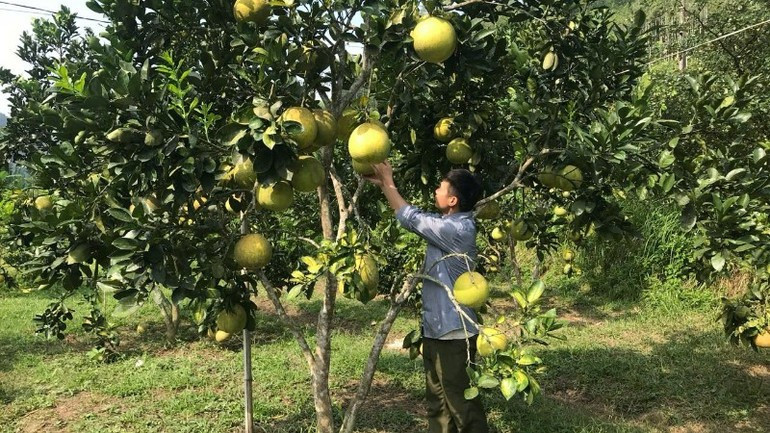
In Thuong Minh and neighbouring communes, Yen Duong Cooperative also plays a leading role in linking production and consumption of other agricultural products, especially fragrant winter melon and arrowroot vermicelli. Both are regional specialties. Farmers and processors alike feel secure thanks to the cooperative’s support and guaranteed purchasing.
A notable aspect of Yen Duong Cooperative, a highland agricultural cooperative, is not only its dedication to farmers but also its proactiveness, and readiness to innovate in line with development trends.
According to Director Ma Thi Ninh, the unit has applied electronic production log technology. This ensures transparency in the production process and provides consumers with clear evidence of product quality.
The cooperative has also developed an integrated information system including geographic location, area, crop type, and production processes. It focuses on promoting and selling agricultural products via e-commerce platforms such as Postmart, Sendo, Shopee, as well as social media platforms like Zalo and Facebook.
Thanks to digital sales channels, Yen Duong Cooperative’s production scale, volume, and revenue have increased by 10–20% in recent years. Its key products, including fragrant winter melon, winter melon tea, Tai sticky rice, and arrowroot vermicelli, have reached many regions across the country.
Currently, about 80% of the cooperative’s products are sold online, and it is striving to reach 100% in the near future.
Speaking of Thai Nguyen, one must mention tea and its cooperatives. Among them, Hao Dat Tea Cooperative has succeeded in making tea a flagship product and integrating it with tourism development. Persistently pursuing VietGAP and organic standards in tea cultivation, investing in processing and packaging technology, and continuously improving product design and labelling, Hao Dat Tea Cooperative has thrived.
It has succeeded with many outstanding OCOP products, including its five-star certified tea buds. In 2024, the cooperative earned nearly 45 billion VND in revenue, created jobs for over 50 workers, and connected production with hundreds of households in the region.
In southern communes of Thai Nguyen Province, there are currently 34 agricultural and service cooperatives combined with tourism, mostly in tea production. These cooperatives create jobs for more than 1,000 members and over 650 workers.
According to Thai Nguyen Provincial People’s Committee, by 2025, the province will have more than 600 agricultural cooperatives. The province has 575 OCOP products rated from three to five stars, with 10 achieving five stars, most of which are developed by cooperatives.
Proactive adaptation
Cooperatives in Thai Nguyen not only affirm their role as the nucleus of rural and highland production but also actively integrate with modern trends.
High-tech applications in cooperatives are being expanded, focusing on managing raw material areas through digital maps, monitoring crop environments using IoT sensors, automated irrigation control, product traceability via QR codes, and applying management software while connecting to markets through e-commerce platforms.
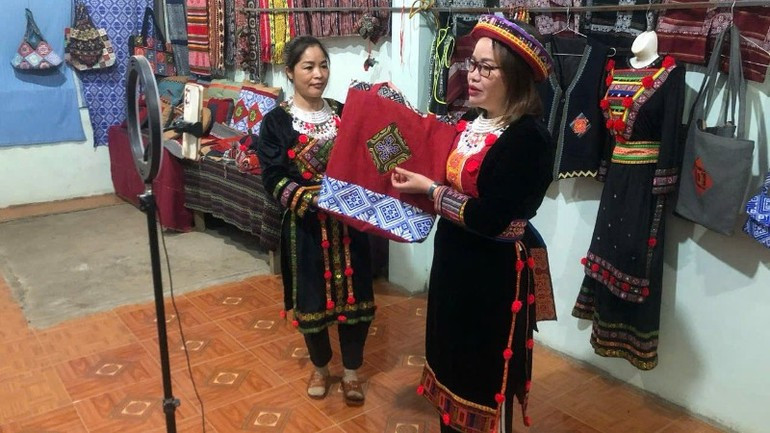
Across the province, more cooperatives specialising in safe tea, high-tech agriculture, and VietGAP and GlobalGAP-standard production have emerged, showing clear effectiveness in yield, quality, and added value.
Hao Dat Tea Cooperative leads in applying science and technology to production. It independently researched and improved tea enzyme-deactivation tubes, integrating them into its traditional processing line. Made from high-grade stainless steel with uniform heating in a sealed chamber and automatic control of temperature and rotation, the device completely inactivates polyphenol oxidase and peroxidase enzymes – crucial factors determining the colour and flavour of green tea.
Compared with manual pan-firing, this device reduces processing time per batch to just three to five minutes, ensures even cooking and pliability of tea leaves, preserves their natural dark green colour and distinctive aroma, and minimises leaf breakage. A single tube can replace up to eight manual pans, reduce labour by two workers per batch, and increase output three to five times.
In terms of promotion and product sales, cooperatives are also dynamic, boldly embracing e-commerce. To date, nearly 50 livestream studios have been set up by cooperatives across Thai Nguyen Province to serve online sales. Cooperatives also actively participate in training courses on livestreaming skills across digital platforms.
Remarkably, agricultural cooperatives have boldly targeted export markets, changing their production mindset towards greater goals. In Dong Phuc Commune, Thanh Tam Herbal Wine Cooperative has persistently pursued the goal of exporting to Japan. After a long process of document preparation, meeting strict quality checks, the cooperative’s products have entered the demanding Japanese market.
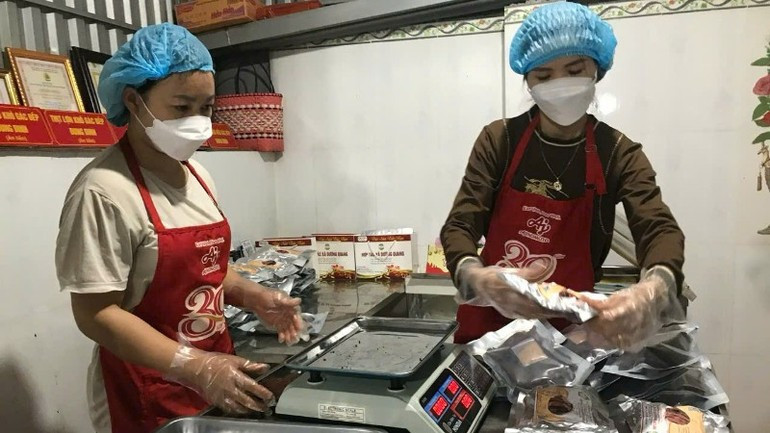
According to Director Nong Thi Tam, with provincial support in infrastructure and connectivity, the cooperative has successfully exported products. As a result, it has also linked production for hundreds of traditional winemaking households in the area.
Similarly, in Con Minh Commune, Tai Hoan Arrowroot Vermicelli Cooperative boldly invested in expanding production with modern processing facilities aimed at exports. Through perseverance and effective production, it has already exported to the European market and is continuing efforts to reach the Republic of Korea, Japan, and the Middle East.
It can be said that cooperatives in Thai Nguyen have gradually formed and strengthened modern production thinking, where quality goes hand in hand with branding. They have boldly adapted to new trends, actively engaging with emerging commercial channels.
Currently, Thai Nguyen Province is also studying and preparing to issue policies and programmes to support collective economic development for the 2026–2030 period. With the cooperatives’ proactiveness and the province’s new mechanisms and policies, cooperatives in Thai Nguyen will grow stronger, further affirming their role as the core in production linkages that bring high value.
